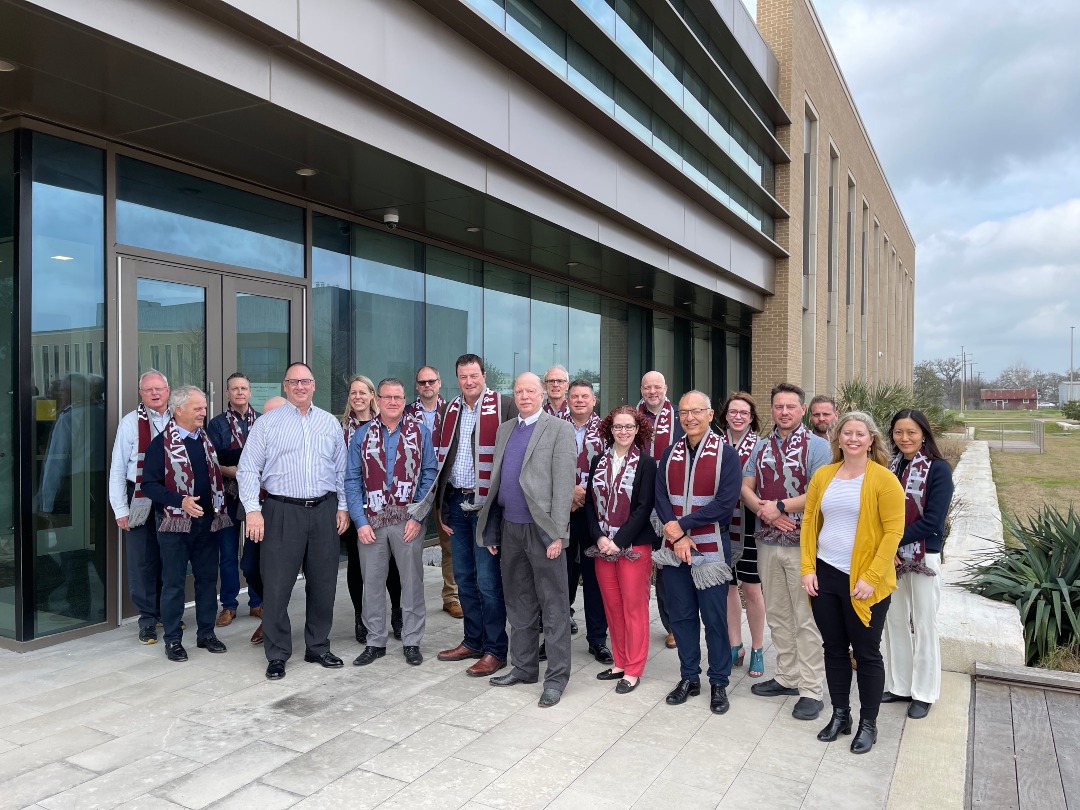
VIDO first non-U.S. organization invited to join high containment network
SASKATOON — The University of Saskatchewan’s (USask) Vaccine and Infectious Disease Organization (VIDO) has been unanimously accepted as the first and only international organization in the Research Alliance for Veterinary Science and Biodefense BSL-3 Network (RAV3N), a partnership of 18 United States-based large biocontainment facilities focused on veterinary infectious diseases.
VIDO is the largest and most advanced Biosafety Level 3 Agriculture (BSL-3 Ag) facility in Canada and the only Canadian non-government facility authorized to work with the foreign animal disease African swine fever.
“Canada and the United States share the world’s longest undefended border, and our wildlife and livestock face similar threats,” said VIDO Director and CEO Dr. Volker Gerdts. “By participating in RAV3N we strengthen our collective preparedness for emerging infectious diseases.”
The research network, headquartered at the Texas A&M University’s Global Health Research Complex (GHRC), was established in 2020. RAV3N enables strategic and co-ordinated approaches for large-animal biocontainment infrastructure and science capacity to improve bio-surveillance, diagnostics, and countermeasure developments against high-consequence pathogens of veterinary importance.
High-consequence veterinary pathogens are viruses and bacteria that have epidemic potential and lack effective vaccines or therapeutics. Examples include African swine fever virus, bovine tuberculosis, contagious bovine pleuropneumonia, and avian influenza—some of which are also zoonotic, meaning they can be transmitted between animals and humans.
“By expanding our partnership to include VIDO as an affiliate member we have taken steps improve North America’s ability to protect our animals,” GHRC Executive Director Kurt Zuelke said. “Infectious diseases don’t obey borders and having VIDO in our network is a positive step to protecting the U.S. from threats.”
The announcement was made public during VIDO’s board meeting in Texas, hosted by GHRC. Dr. Gerald W. Parker, associate dean for Global One Health at Texas A&M, is a member of VIDO’s board of directors. During the visit, the groups are also identifying additional potential collaborative opportunities.
In the near future, Zuelke said GHRC plans to host a series of high-level meetings to explore opportunities for VIDO and USask to partner with colleges, schools and agencies within the Texas A&M research enterprise, which posted $1.153 billion in total research expenditures in its most recent fiscal year (2022).
-30-
For more information, contact:
Brooke Kleiboer
USask Media Relations
brooke.kleiboer@usask.ca
306-966-1388
Trenna Brusky
VIDO Marketing Coordinator
trenna.brusky@usask.ca
306-966-2274
About University of Saskatchewan’s Vaccine and Infectious Disease Organization:
The University of Saskatchewan’s Vaccine and Infectious Disease Organization (VIDO) is internationally recognized for its role in vaccine development and is one of Canada’s national science facilities. VIDO has a 45-year history of vaccine development and commercialization—eight of its vaccines have been sold commercially, and six have been described as world-firsts. The >170-member organization operates using an ISO:9001 certified management system in state-of-the-art containment Level 2 and 3 facilities. VIDO receives operating support from the Canada Foundation for Innovation Major Science Initiatives fund and the Government of Saskatchewan through Innovation Saskatchewan and the Ministry of Agriculture. Visit www.vido.org
GHRC is a state-of-the-art, nationally distinct, high-containment research facility and core laboratory serving as a resource to combat emerging infectious disease threats. In addition, GHRC is the USDA-designated Secretariat for RAV3N, a newly formed network of federal and university large animal biocontainment and BSL-3/4 laboratory facilities delivering collaborative research, service, and pandemic preparedness. Visit https://ghrc.tamu.edu.

